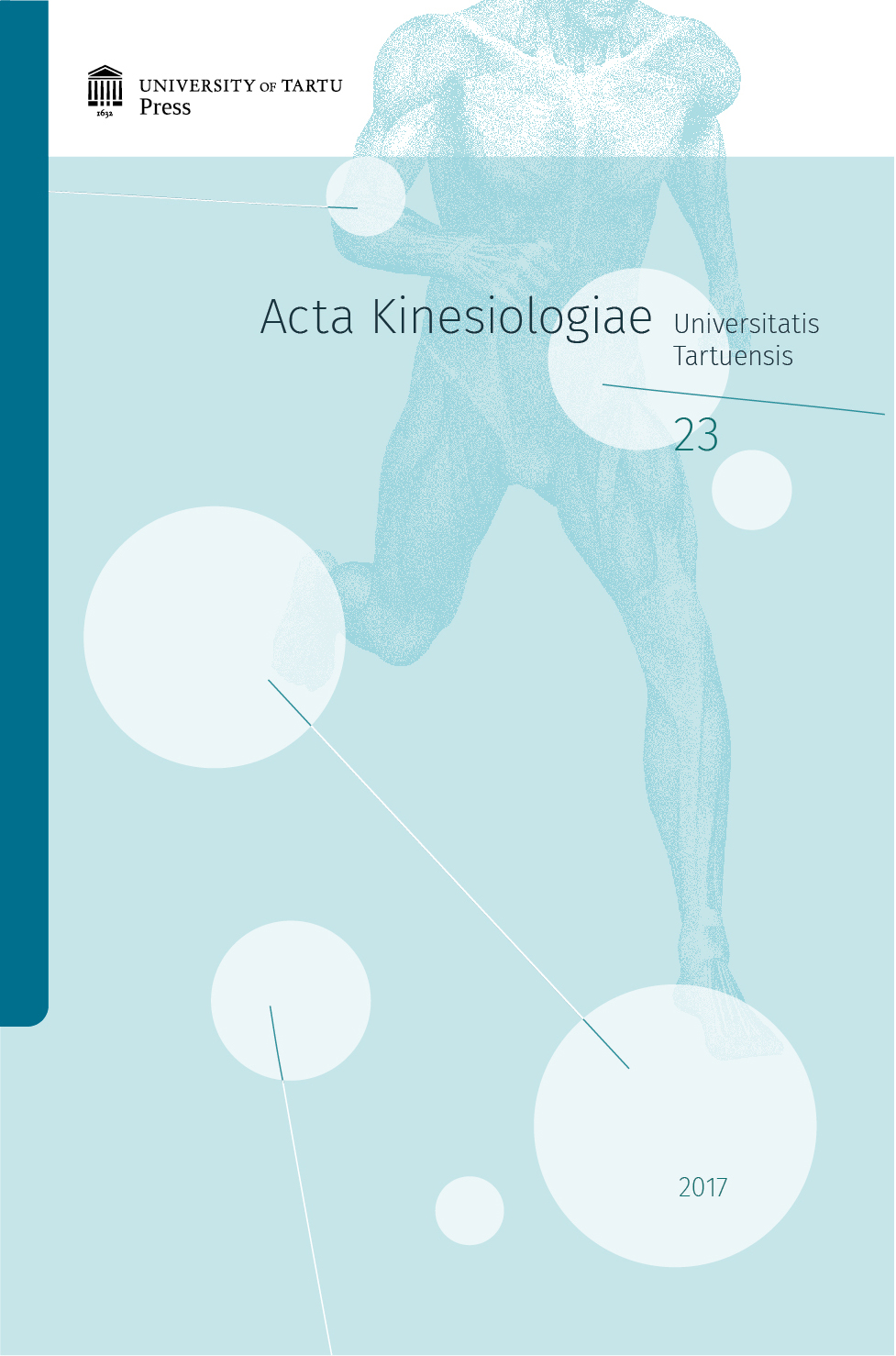Physical fitness among 6th grade students and evaluation with the normative reference values
DOI:
https://doi.org/10.12697/akut.2017.23.06Keywords:
health- and skill-related fitness components, physical fitness tests, development of physical abilitiesAbstract
The objective of this study was to compare Estonian 6th grade students’ physical fitness level with normative values from ALPHA fitness test and international normative 20 m shuttle run values. The following healthrelated fitness components were assessed: cardiorespiratory fitness, flexibility, muscular strength, muscular endurance and speed, as a skillrelated fitness component. Physical fitness results were evaluated with the ALPHA health-related fitness test battery for children and adolescents and with normative 20 m shuttle run values. Students from 6th grade (n=178) participated in the study. Physical fitness performance was not signi ficantly different between boys and girls, except for flexibility and upper body muscle strength and endurance. Boys’ percentage in very low and low level was higher on every test compared to girls’ results based on normative values. The results of the research indicate the importance to measure the physical fitness of schoolchildren and to compare them with the evaluation scales to plan and carry out more PE lessons focusing on physical fitness development. Further research is needed to evaluate students’ physical fitness levels among different age groups. Physical fitness development is urgently needed and should be included in school curriculum.Downloads
Download data is not yet available.


